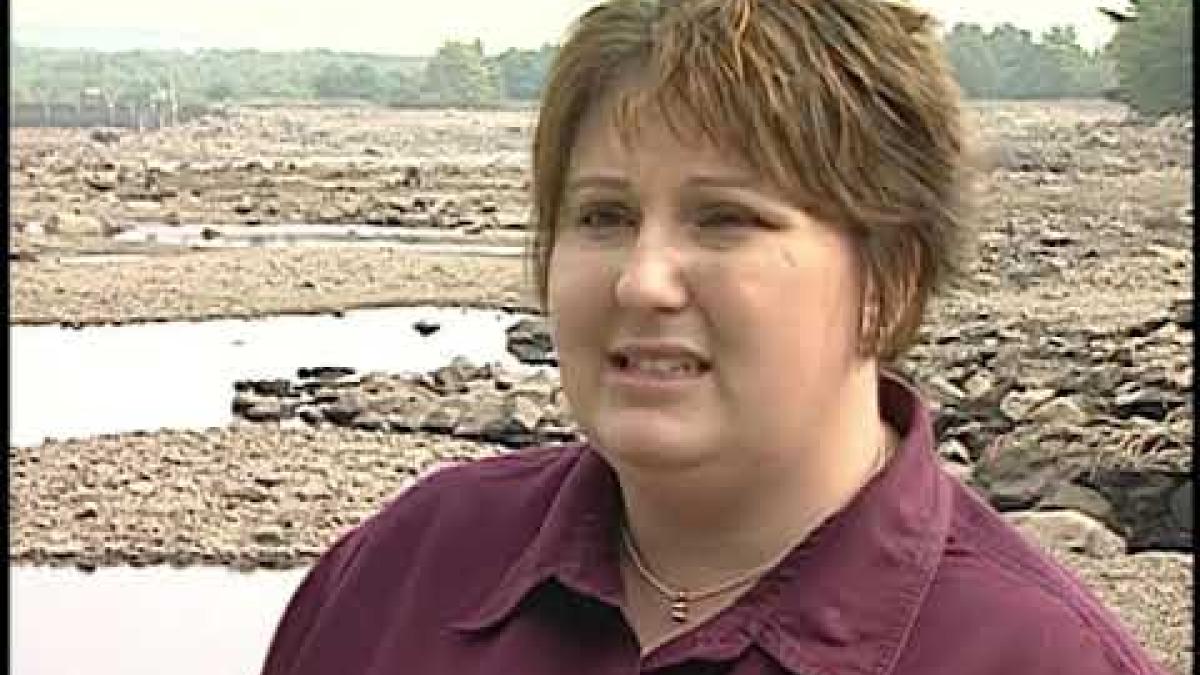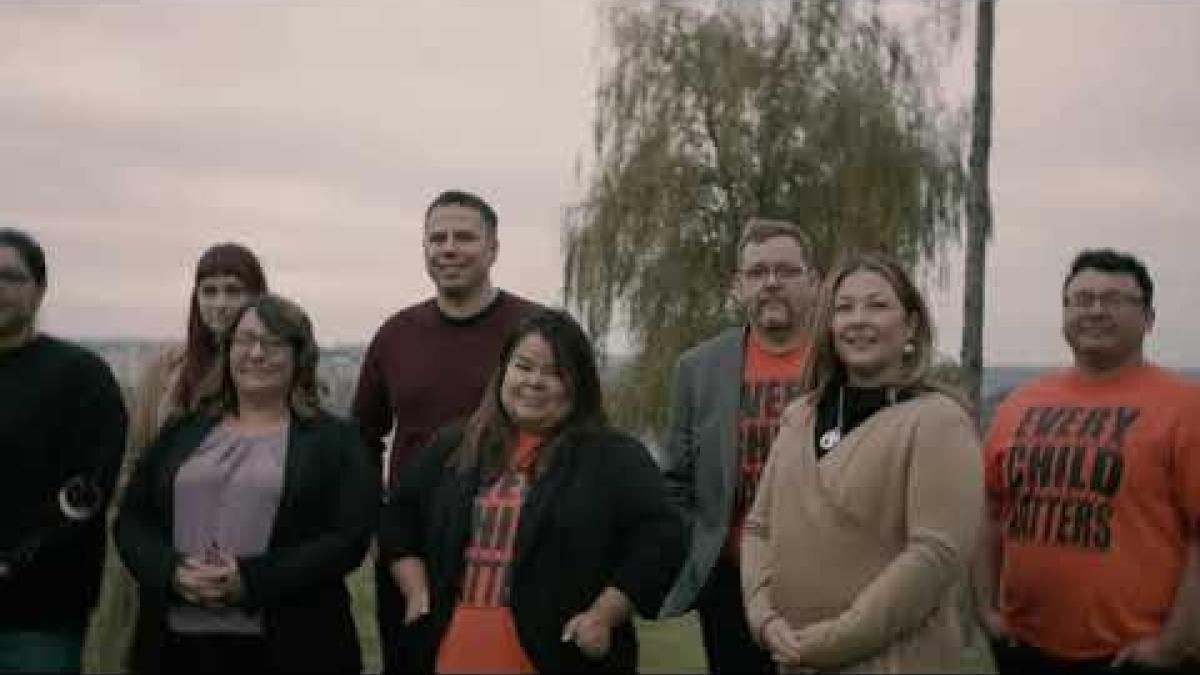November is Native American Heritage Month, a time for us all to recognize the achievements, history, and culture of Indigenous Peoples in America. This month, we asked Lee Morris, Senior Field Engineer, to provide his perspective on the Mi'kmaq experience and what his heritage means to him. He wrote the following:
Kwe',
Teluisi Leon Morris Ni'n na Mi'kmaw aqq tleyawi Sipekne'kati. Hello, My name is Leon Morris and I am Mi'kmaw from the Sipekne'kati First Nations. I was born in Greenfield, Massachusetts in 1969 to Carla and Louis Morris. My father is Mi'kmaw from Sipekne'kati, but left his reservation to join the US Army and fight in Vietnam from June of 1969 - July of 1972. When I first met my father, I was 4 years old and living in Junction City, Kansas as he was stationed at Fort Riley upon his return from Vietnam.
I grew up like any other kid in Middle America in the early 70's. Never knowing I was part Indigenous, as my father never spoke of his childhood. For a time, I honestly thought my dad was Mexican. At the age of 6, my father left the Army and we moved to Holyoke, Massachusetts. It was then, when my Father and I went to Nova Scotia and I met my paternal grandparents, uncles/aunts, and cousins for the first time. It was then I learned I am Mi'kmaw.
I had all kinds of questions. My Nukumij (Grandmother) and Niskamij (Grandfather) showed me many things as a child when I visited. How to make harvest and pound black ash to make Mi'kmaq Baskets, beading, quill work, traditional hunting, fishing and gathering. I got to hear stories about my ancestors, attend Mawio'mi (PowWow) and learned about my Indigenous culture and heritage. I learned the "fun" things about being Indigenous. When I was 9, my father left my mother and moved home to Nova Scotia. A year later, my mother woke my sister and myself up at 04:00, we got into her car and we all moved from Massachusetts to Sipekne'kati First Nations, in Nova Scotia.
Growing up as a teenager who was half white and half Indigenous, is when I learned the "bad" things about being Indigenous. I experienced racism for the very first time, well, racism directed at me. I was ridiculed by non-natives, being called Half-breed, wagon burner, dumb Indian, poor Indian, rez trash and list goes on. But at the exact same time, I received similar abuse from members of my reservation. I was called half-breed, candy apple, white kid, and many other names. I was always told that my father isn't my father because I look white and my sister looks Indigenous. So, needless to say, I was one very confused and hurt teenager. As well, living on the reservation in the early 80's was not picnic. Drug abuse, rampant alcoholism and poverty affected everyone. I began resenting my Indigenous heritage and only embraced my non-indigenous side.
It wasn't until I was in University and a Naval Reservist, that I met other Indigenous peoples from other parts of Canada and realized that Mi'kmaq peoples were not the only Indigenous peoples suffering on their reservations. I learned about Residential schools, the 60's scoop, Indian agents and the forced assimilation of Indigenous peoples. The loss of our culture, languages, lands and our history. My Aunt Isabelle Shaw-Knockwood wrote the book, "Out of the Depths", chronicling the early life of my Nukumij and Niskamij, while they were in the Shubencadie Residential School. The abuse they received by the church and the fact that the Canadian Government turned a blind eye.
I began researching other Mi'kmaw Authors and scholars. It was then I learned of Daniel N. Paul - a respected Mi'kmaq elder, knowledge keeper and accomplished author, who wrote the book "We Were Not the Savages". It was through his writings that I realized that the agenda of governments in North America has been present since first contact with Europeans. It was during this time, I began to learn, grow, forgive and truly understand what it means to be Indigenous. Around this time, my uncle, Noel Knockwood, became the First Indigenous Sargent of Arms of The Nova Scotia Legislative Assembly (Provincial Government). It was a very proud moment for my family and all Mi'kmaq people of Nova Scotia. However, my most important role model of all, is my Nukumij. Sunset Rose Knockwood-Morris is 94 years old and still makes baskets, paints, writes children's stories, sings at Mawio'mi and is a respected Elder of our peoples. Every chance I get, I spend as much time as I can with her and listen to her stories, songs and musings.
I am very proud of both my Heritages. I am of Irish Decent and I am Mi'kmaw. I come from many accomplished ancestors on both sides of my family tree. Writers, singers, dancers, scholars, artists, war heroes... the list goes on. Because of this blending, I now embrace all cultures and strive to learn everything I can. This is called Etuaptmumk (Two Eyed Seeing) in Mi'kmaq. Working for Acuative, a multi-cultural employer, for the past 12 years allows me to practice Etuaptmumk on a daily basis. Either through interactions with my co-workers or our customers. I have traveled all over North America for Acuative and met many, many people from different cultures. So far, I have enjoyed every minute of my time with Acuative and am looking forward to more years of service and travel. Because of my history, ancestors, good employers like Acuative, I am able to live a good life and be able to pass this knowledge on to my grandchildren. Hopefully, teaching them to be just as accepting of other peoples and cultures as I am.
If you want to learn more about my tribe and nation:

Or:

Woliwon, Wela’lin, Merci, Thank You,
Leon "Lee" Morris
Senior Field Engineer
